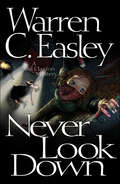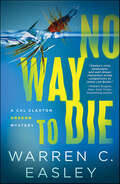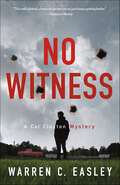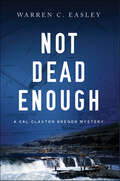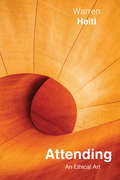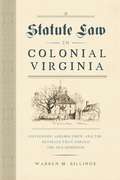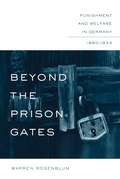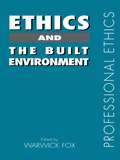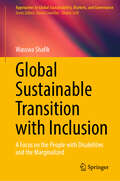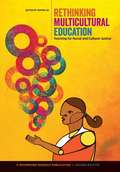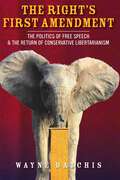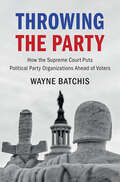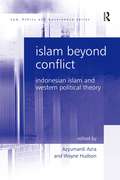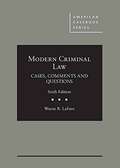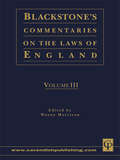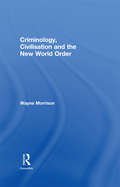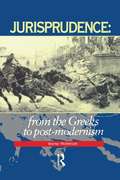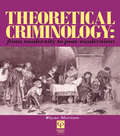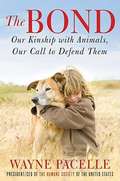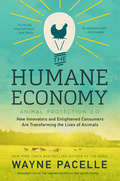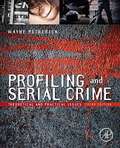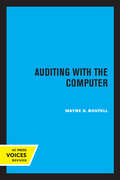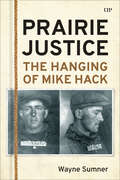- Table View
- List View
Never Look Down: A Cal Claxton Oregon Mystery (Cal Claxton Mysteries #3)
by Warren C Easley"Lawyer Cal is an appealing knight in rusty armor, seeking justice for the most vulnerable...Easley exquisitely captures Portland's flavor, and his portrayal of street life is spot-on. Readers of John Hart and Kate Wilhelm will delight in trying a new author." —Library JournalIn his first case in private practice, Oregon lawyer Cal Claxton came to the aid of a tagger calling himself Picasso, a Banksy-like figure in Portland. Dividing his time between a wine-country town and the city, the ex-L.A. prosecutor now encounters another urban teen at risk, Kelly Spence, also a tagger. Using climbing skills learned from her much-loved deceased father, a mountaineer, Kelly places angry tags in visible, hard-to-reach places. A runaway from an abusive foster home and alternative high school student, she lives with her father's former girlfriend.Kelly is four stories up at 3:00 one morning when she looks down and witnesses the brutal murder of a woman in the parking lot below. Unluckily the killer spies her but Kelly escapes. The police soon seek her as a witness. Desperate to stay anonymous, she seeks help from someone on the street she trusts. Too soon she finds his mutilated body and becomes even more afraid.Cal is drawn into the case by his volatile Cuban friend and landlord who is devastated by the murder: the dead woman had just become his fiancée. Her ex is the obvious suspect, but Cal's instincts lead him in a different direction where he will run into Kelly. Can he get her to talk, or will the killer find her first?
No Way to Die (Cal Claxton Mysteries #7)
by Warren C EasleyWhen nothing is as it seems, can the truth survive?Attorney Cal Claxton, now well-established in his Oregon law practice after breaking off his career as a high-powered LA prosecutor, just wants to go fishing with his daughter, Claire, and he knows the best place—the coastal area south of Coos Bay. But their vacation takes a dark turn with the discovery of a body in the river.As an investigation is launched into the suspicious death, Cal and Claire find themselves drawn into the life of the local bookshop owner and vocal environmental activist, whose grandson was convicted for murder at age sixteen. She believes he was wrongly accused and convinces Cal to reexamine the case. Together, Cal and Claire dig deep into the secrets and crumbling alliances that form the foundation of this small coastal community, and what they find could spell doom for them both...
No Witness: A Cal Claxton Mystery (Cal Claxton Mysteries #8)
by Warren C EasleyWhen the American Dream becomes a nightmare…Running a one-man law practice in the heart of Oregon's wine country, Cal Claxton hires a young, undocumented man as an assistant, hoping to give him an opportunity to create more stability for himself and his family. Timoteo Fuentes is a bright, hardworking student by day and Cal's legal clerk by night, juggling both roles with determination and grit. When one of Timoteo's family members is brutally murdered, the migrant community is reluctant to cooperate with the police investigation for fear of deportation.Devastated by the loss and nervous about engaging with the legal system, the family turns to Cal for help. With Timoteo protected as a "Dreamer" from deportation, the two begin a dangerous investigation of ruthless people who leverage the fear of a vulnerable population for profit and an assassin who is as cunning as he is deadly. Can Cal and Timoteo untangle the web of deceit or will they become victims themselves?
Not Dead Enough: A Cal Claxton Oregon Mystery (Cal Claxton Mysteries #4)
by Warren C Easley"Masterfully crafted... stunningly beautiful descriptions..." —Anne Hillerman, New York Times bestselling authorThe first closing of the floodgates of the mammoth Dalles Dam on the Columbia River inundated the sacred falls and the Native American village at Celilo which depended on the river's magnificent fish. Nelson Queah, Wasco Indian, war hero, and passionate opponent of the dam, watched helplessly as 10,000 years of tribal history and fishing tradition disappeared. That 1957 night, Nelson Queah vanished without a trace.Fifty years later, attorney Cal Claxton, new to Portland after a career as a prosecutor in Los Angeles, attends a commemoration of the flooding of the falls at the behest of his friend, Philip Lone Deer, who introduces Cal to his cousin, Winona Cloud. Winona is Nelson Queah's granddaughter. Spurning the story of a witness at the time who claimed to have seen Queah drunk by the river, she reveals she's found a cache of letters at her grandmother's home, letters Queah wrote to his wife before he vanished. They suggest foul play, and not an accidental drowning.Cal, still grieving over his own wife's suicide, agrees to check out the cold case. He locates the man who put out the drunk story and sets up an interview. When he arrives, he finds the man shot by a sniper. Cal gets a glimpse of the shooter and becomes a target himself.
Attending: An Ethical Art (McGill-Queen's Studies in the History of Ideas #82)
by Warren HeitiAttending – patient contemplation focused on a particular being – is a central ethical activity that has not been recognized by any of the main moral systems in the European philosophical tradition. That tradition has imagined that the moral agent is primarily a problem solver and world changer when what might be needed most is a witness.Moral theory has been agonized by dualism – motivation is analyzed into beliefs and desires, descriptions of facts and dissatisfactions with them, while action is represented as an effort to lessen dissatisfaction by altering the empirical world. In Attending Warren Heiti traces an alternative genealogy of ethics, drawing from the Platonism recovered by Simone Weil and developed in the work of Iris Murdoch, John McDowell, and Jan Zwicky. According to Weil, virtue is knowledge, knowledge is embodied, and the knower is nested in an ecosystem of relationships. Instead of analyzing and solving theoretical problems, Heiti aims to clarify the terrain by setting up objects of attention from more than one discipline, including not only philosophy but also literature, psychology, film, and visual art.The traditional picture captures one important type of ethical activity: faced with a moral problem, one looks to a general rule to furnish the solution. But not all problems conform to this model. Heiti offers an alternative: to see what is needed, one attends to the particular being.
Statute Law in Colonial Virginia: Governors, Assemblymen, and the Revisals That Forged the Old Dominion (Early American Histories)
by Warren M. BillingsBetween 1632 and 1748, Virginia’s General Assembly revised the colony’s statutes seven times. These revisals provide an invaluable opportunity to gauge how governors, councilors, and burgesses created a hybrid body of colonial statute law that would become the longest strand in the American legal fabric. In Statute Law in Colonial Virginia, Warren Billings presents a series of snapshots that depict the seven revisions of the corpus juris the General Assembly undertook. In so doing, he highlights the good, the corrupt, and the loathsome applications of broad legislative authority throughout the colonial era. Each revision was built on prior written law and embodies the members’ legal knowledge and statutory craftsmanship, revealing their use of an unbridled discretion to further the interests they represented. Statutes undergirded Virginia’s evolving legal culture, and by examining these revisals and their links, Billings casts light on the hybrid nature of Virginia statute law and its relation to English laws.
Beyond the Prison Gates
by Warren RosenblumGermany today has one of the lowest incarceration rates in the industrialized world, and social welfare principles play an essential role at all levels of the German criminal justice system. Warren Rosenblum examines the roots of this social approach to criminal policy in the reform movements of the Wilhelmine and Weimar periods, when reformers strove to replace state institutions of control and incarceration with private institutions of protective supervision.Reformers believed that private charities and volunteers could diagnose and treat social pathologies in a way that coercive state institutions could not. The expansion of welfare for criminals set the stage for a more economical system of punishment, Rosenblum argues, but it also opened the door to new, more expansive controls over individuals marked as "asocial." With the reformers' success, the issue of who had power over welfare became increasingly controversial and dangerous. Other historians have suggested that the triumph of eugenics in the 1890s was predicated upon the abandonment of liberal and Christian assumptions about human malleability. Rosenblum demonstrates, however, that the turn to "criminal biology" was not a reaction against social reform, but rather an effort to rescue its legitimacy.
The Law of Contract 1670-1870
by Warren SwainThe foundations for modern contract law were laid between 1670 and 1870. Rather than advancing a purely chronological account, this examination of the development of contract law doctrine in England during that time explores key themes in order to better understand the drivers of legal change. These themes include the relationship between lawyers and merchants, the role of equity, the place of statute, and the part played by legal literature. Developments are considered in the context of the legal system of the time and through those who were involved in litigation as lawyers, judges, jurors or litigants. It concludes that the way in which contract law developed was complex. Legal change was often uneven and slow, and some of the apparent changes had deep roots in the past. Clashes between conservative and more reformist tendencies were not uncommon.
Ethics and the Built Environment: Human Relationships, Nature, And The Built Environment (Professional Ethics)
by Warwick FoxMuch has been written in recent years on environmental ethics relating to the more general 'natural' environment but little specifically written about ethics of the built environment. Ethics and the Built Environment responds to this need and offers a debate on the ethical dimension of building in all its forms from a variety of disciplinary perspectives and approaches.This book should be of interest to architects, students of building and building design, environmentalists, politicians and general readers with an interest in ethics.
Global Sustainable Transition with Inclusion: A Focus on the People with Disabilities and the Marginalized (Approaches to Global Sustainability, Markets, and Governance)
by Wasswa ShafikThis book provides a comprehensive exploration of inclusive, sustainable development, emphasizing the critical need to integrate the perspectives and needs of people with disabilities and marginalized communities into the global sustainability transition to a sustainable future. Through highlighting the intersectionality of identity and the unique challenges faced by these groups, the book addresses a pressing issue: the often-overlooked barriers that hinder their full participation in sustainable transitions. Organized into three parts, the book first contextualizes the relationship between sustainability and inclusion. It delves into the historical and theoretical frameworks that shape our understanding of marginalization, exploring how disability intersects with various social identities. This foundation sets the stage for an in-depth analysis of the United Nations Sustainable Development Goals (SDGs) and the ways in which they can be made more inclusive, ensuring that no one is left behind. The second part identifies and examines the myriad barriers to inclusion within sustainable practices. It addresses structural, socioeconomic, and cultural obstacles that perpetuate exclusion while also critiquing existing policy frameworks for their limitations in addressing the needs of marginalized populations. Through case studies, the book highlights successful initiatives and innovative practices that promote accessibility and equity, mainly through the use of assistive technologies and community engagement. In the final section, the book outlines actionable strategies for fostering inclusive, sustainable development. It emphasizes the importance of community engagement, participatory decision-making, and the empowerment of marginalized voices. Additionally, it discusses metrics for monitoring and evaluating the impact of sustainability initiatives on people with disabilities, providing a framework for accountability and continuous improvement. This book aims to bridge the gap between sustainability and social justice, offering a roadmap for stakeholders, policymakers, and practitioners committed to creating a more inclusive world. This book targets academics, policymakers, non-profit societies, and activists working at the intersection of sustainability and social equity and serves as a vital resource for those seeking to understand and promote inclusive practices in the global sustainable transition.
Rethinking Multicultural Education: Teaching for Racial and Cultural Justice
by Wayne Au<P>All writing is a collective process, and none more so than with Rethinking Schools. <P>This book would have not been possible without the collective efforts of many people.
The Right’s First Amendment: The Politics of Free Speech & the Return of Conservative Libertarianism
by Wayne BatchisNot so long ago, being aggressively "pro-free speech" was as closely associated with American political liberalism as being pro-choice, pro-affirmative action, or pro-gun control. With little notice, this political dynamic has been shaken to the core. The Right's First Amendment examines how conservatives came to adopt and co-opt constitutional free speech rights. In the 1960s, free speech on college campuses was seen as a guarantee for social agitators, hippies, and peaceniks. Today, for many conservatives, it represents instead a crucial shield that protects traditionalists from a perceived scourge of political correctness and liberal oversensitivity. Over a similar period, free market conservatives have risen up to embrace a once unknown, but now cherished, liberty: freedom of commercial expression. What do these changes mean for the future of First Amendment interpretation? Wayne Batchis offers a fresh entry point into these issues by grounding his study in both political and legal scholarship. Surveying six decades of writings from the preeminent conservative publication National Review alongside the evolving constitutional law and ideological predispositions of Supreme Court justices deciding these issues, Batchis asks the conservative political movement to answer to its judicial logic, revealing how this keystone of our civic American beliefs now carries a much more complex and nuanced political identity.
Throwing the Party: How the Supreme Court Puts Political Party Organizations Ahead of Voters (Cambridge Studies on Civil Rights and Civil Liberties)
by Wayne BatchisThe Supreme Court's jurisprudence on political parties is rooted in an incomplete story. Parties are, like voluntary clubs, associations of individuals that are represented by a singular organization. However, as political science has long understood, they are much more than this. Parties are also the voters who choose and support their candidates, the elected officials who govern, the activists and volunteers who contribute their time and energy, and the individual and organizational donors who open their wallets. Unfortunately, the Court's framework for understanding America's two-party system has largely ignored this broader conception of political parties. The result has been a distortion of the true nature of the two-party system, and a body of deeply inconsistent and contradictory constitutional case law. From primaries to campaign finance, partisan gerrymandering to ballot access, law and politics scholar Wayne Batchis interrogates, scrutinizes, and offers a proposed solution to this problematic jurisprudence.
Islam Beyond Conflict: Indonesian Islam and Western Political Theory (Law, Ethics and Governance)
by Wayne HudsonPolitically, Islam in Indonesia is part of a rich multi-cultural mix. Religious tolerance is seen as the cornerstone of relations between different faiths - and moderation is built into the country's constitutional framework. However, the advent of democracy coupled with the impact of the South-East Asian economic collapse in 1997, and the arrival of a tough new breed of Middle Eastern Islamic preachers, sowed the seeds of the current challenge to Indonesia's traditionally moderate form of Islam. This volume explores the extent to which moderate Indonesian Islam is able to assimilate leading concepts from Western political theory. The essays in the collection explore how concepts from Western political theory are compatible with a liberal interpretation of Islamic universals and how such universals can form the basis for a contemporary approach to the protection of human rights and the articulation of a modern Islamic civil society.
Modern Criminal Law: Cases, Comments And Questions (American Casebook Series)
by Wayne LaFaveModern Criminal Law: Cases, Comments and Questions (American Casebook Series) 6th Edition. <p><p>This law school casebook is intended for use in a basic course on the substantive criminal law. The major emphasis in this casebook is upon what is usually referred to as the "general part" of the criminal law, mental state and act, responsibility, justification and excuse, inchoate crimes and liability for the conduct of another. There is also special emphasis upon the actual and potential contributions of the legislative branch in resolving the difficult policy questions that exist in this field. <p><p>This sixth edition differs from its predecessor largely by enrichment of the Notes and Questions throughout the book with excerpts from over 100 new appellate cases and over 50 recent law review articles.
Guns, Crime, and Freedom
by Wayne LapierreLaPierre, CEO at the National Rifle Association, argues against the banning of firearms. Annotation c. by Book News, Inc., Portland, OR.
Blackstone's Commentaries on the Laws of England Volumes I-IV
by Wayne MorrisonFirst published in 2001. Routledge is an imprint of Taylor & Francis, an informa company.
Criminology, Civilisation and the New World Order
by Wayne MorrisonExpertly authored by the co-editor of the best-selling text Cultural Criminology Unleashed, this book re-examines criminology in a global context. Wide-ranging and up-to-date, it covers the topics of colonialism and post-colonialism, genocide, state control, the impact of September 11th and the post-9/11 world. Exploring the relationship between a modern discipline and modernity, it reworks the history and composition of criminology in light of September 11th and the prevalence of genocide in modernity. Analizing statistics, anthropology and the everyday assumptions of criminology's history, this text addresses the political and scholarly grip on the territorial state and the absence of a global criminology. Rejecting the prevalent belief that September 11th and the responses it evoked were exceptions that either destroyed or revealed the absence of global legal order, the author argues that, in fact, they confirm the nature of the world order of modernity. A compelling and topical volume, this is a must read for anyone interested or studying in the areas of criminology and criminal justice.
Jurisprudence: From The Greeks To Post-Modernity
by Wayne MorrisonThis challenging book on jurisprudence begins by posing questions in the post-modern context,and then seeks to bridge the gap between our traditions and contemporary situation. It offers a narrative encompassing the birth of western philosophy in the Greeks and moves through medieval Christendom, Hobbes, the defence of the common law with David Hume, the beginnings of utilitarianism in Adam Smith, Bentham and John Stuart Mill, the hope for enlightenment with Kant, Rousseau, Hegel and Marx, onto the more pessimistic warnings of Weber and Nietzsche. It defends the work of Austin against the reductionism of HLA Hart, analyses the period of high modernity in the writings of Kelsen, Hart and Fuller, and compares the different approaches to justice of Rawls and Nozick. The liberal defence of legality in Ronald Dworkin is contrasted with the more disillusioned accounts of the critical legal studies movement and the personalised accounts of prominent feminist writers.
Theoretical Criminology from Modernity to Post-Modernism
by Wayne MorrisonThis book incorporates many of the exciting debates in the social sciences and philosophy of knowledge concerning the issues of modernity and post-modernism. It sets out a new project for criminology, a criminology of modernity, and offers a sustained critique of theorizing without a concern for social totalities. This book is designed to place criminological theory at the cutting edge of contemporary debates. Wayne Morrison reviews the history and present state of criminology and identifies a range of social problems and large scale social processes which must be addressed if the subject is to attain intellectual commitment. This book marks a new development in criminological texts and will serve a valuable function not only for students and academics but for all those interested in the project of understanding crime in contemporary conditions.
The Bond: Our Kinship with Animals, Our Call to Defend Them
by Wayne PacelleThis book offers an insightful and engaging look at our relationship with animals--what they have taught us, how they are integral to our survival, how we are threatening their existence, and how we can find balance and sustainability.
The Humane Economy: How Innovators and Enlightened Consumers Are Transforming the Lives of Animals
by Wayne PacelleA major new exploration of the economics of animal exploitation and a practical roadmap for how we can use the marketplace to promote the welfare of all living creatures, from the renowned animal-rights advocate Wayne Pacelle, President/CEO of the Humane Society of the United States and New York Times bestselling author of The Bond.In the mid-nineteenth century, New Bedford, Massachusetts was the whaling capital of the world. A half-gallon of sperm oil cost approximately $1,400 in today's dollars, and whale populations were hunted to near extinction for profit. But with the advent of fossil fuels, the whaling industry collapsed, and today, the area around New Bedford is instead known as one of the best places in the world for whale watching.This transformation is emblematic of a new sort of economic revolution, one that has the power to transform the future of animal welfare. In The Humane Economy, Wayne Pacelle, President/CEO of the Humane Society of the United States, explores how our everyday economic decisions impact the survival and wellbeing of animals, and how we can make choices that better support them. Though most of us have never harpooned a sea creature, clubbed a seal, or killed an animal for profit, we are all part of an interconnected web that has a tremendous impact on animal welfare, and the decisions we make--whether supporting local, not industrial, farming; adopting a rescue dog or a shelter animal instead of one from a "puppy mill"; avoiding products that compromise the habitat of wild species; or even seeing Cirque du Soleil instead of Ringling Brothers--do matter. The Humane Economy shows us how what we do everyday as consumers can benefit animals, the environment, and human society, and why these decisions can make economic sense as well.
Profiling and Serial Crime: Theoretical and Practical Issues in Behavioral Profiling
by Wayne PetherickProfiling and Serial Crime examines the principles of behavioral profiling and then applies them to serial crime. This book is a completely revised and updated edition of an excellent text on behavioral profiling and serial crime. It provides a theoretical and practical foundation for understanding the motivation and dynamics in a range of serial offenses. <P><P> Part I of the book deals with the history, crucial issues, methods, theory, and treatment in the mainstream media. Part II discusses serial crime in detail, including bullying, stalking, rape, murder, and arson. <P><P>The title of this edition reflects the focus on profiling as well as serial crime and has been updated throughout with the latest research. <P><P>New to this edition are five all-new chapters, including serial harassment and cyber-bullying and the motivations of victim and offender; two replacement chapters on serial rape and serial arson; enhanced pedagogy to keep students focused on what’s important; and new ancillary materials for both instructor and student. The book consists of ancillary online materials for instructors and students, including lecture slides, test bank and case studies. Numerous case examples are included to show the real world uses of behavioral profiling in investigations. <P><P> This book will appeal to professionals and students in criminal justice and forensic psychology programs, as well as those taking courses in criminal profiling, especially courses on serial crime.
Auditing with the Computer
by Wayne S. BoutellThis title is part of UC Press's Voices Revived program, which commemorates University of California Press’s mission to seek out and cultivate the brightest minds and give them voice, reach, and impact. Drawing on a backlist dating to 1893, Voices Revived makes high-quality, peer-reviewed scholarship accessible once again using print-on-demand technology. This title was originally published in 1965.
Prairie Justice: The Hanging of Mike Hack (Osgoode Society for Canadian Legal History)
by Wayne SumnerIn May 1928, the body of George Edey was discovered on his Saskatchewan farm, leading to the swift arrest of a deaf and mentally disabled farmhand named Mike Hack. Following a three-day murder trial, Hack was quickly convicted and sentenced to death. Denied clemency, in January 1929 he was hanged in the courtyard of the Regina Jail at twenty-seven years of age and buried in an unmarked grave. Prairie Justice dissects this case, revealing its implications for important themes in the history of the Canadian criminal justice system. Wayne Sumner meticulously traces the narrative of the case, analysing each step from the initial murder investigation to the subsequent arrest, trial, conviction, denial of clemency, and execution of the man accused. Drawing on a personal connection to the case rooted in his family history – his father’s hometown was the village where the crime occurred, and both his grandfather and great-grandfather were involved in the investigation – Sumner uncovers deeper and more universal reasons to share the story. The book punctuates the narrative with insightful analysis on key criminal justice themes illustrated by the case: unfitness to stand trial, the defence of insanity, ineffective assistance of counsel, wrongful conviction, and miscarriage of justice. Ultimately, Prairie Justice exposes how access to justice can be merely illusory for the poor and marginalized.
